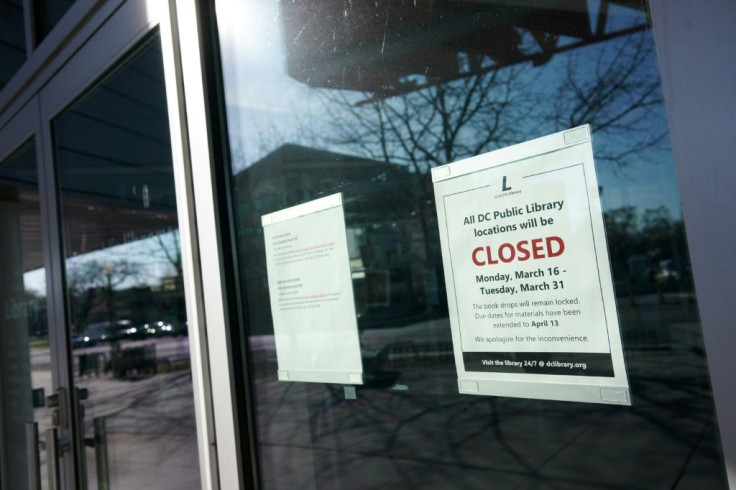Almost 20 Percent Of Americans Say Coronavirus Hurt Their Employment

KEY POINTS
- 1 in 5 American households have had reduced work hours or job losses
- 60% said they don't trust Trump administration on coronavirus information
- On Tuesday, White House announced plan to "immediately" get cash to Americans
As the spread of the novel coronavirus compels businesses and offices to close their doors and send their employees home, a number of Americans are being left with reduced work hours and worse, no job at all.
A recent poll conducted by NPR/PBS NewsHour/Marist found that almost one in five American homes have been impacted negatively due to the coronavirus crisis. Despite a push to have employees work from home in place of in-person office work, not all Americans’ line of work lends itself to working remotely.
For other households, it can be linked to industry-wide effects, particularly among the travel, hospitality and service industries. With many cities ordering establishments like bars and cafes to shutter and travel abroad being drastically limited, it’s become unavoidable for some businesses to lay employees off. Experts expect most sectors to be similarly affected.
Unsurprisingly, those households with annual incomes under $50,000 were hardest hit, with one-quarter reporting work hour reductions or job losses.
Americans have been increasingly losing their faith in President Donald Trump and his team when it comes to managing the coronavirus crisis; just two-in-five trust him. Only 47 percent said the administration is taking the proper steps to handle the pandemic.
As the stock market continues to tumble and Americans lose their jobs during this national emergency, these numbers are going to be very important to Trump and his campaign when it comes to winning a second term in the White House. The number of Americans affected by the coronavirus, one way or another, will only grow between now and November.
This reality doesn’t seem to have been lost on Trump. On Tuesday, Treasury Secretary Steven Mnuchin proposed an $850 billion stimulus package, a portion of which would be used to send “checks to Americans immediately.” Although the exact amount each household will receive and who will qualify is currently unclear, Sen. Mitt Romney, R-Utah, recently suggested giving $1,000 to every American adult.
Whether this stimulus bill will pass through the Senate – and whether it will provide meaningful help for those who truly need it – remains to be seen. For Trump, however, he no doubt hopes it will and in doing so boost Americans’ view of his coronavirus response. If he can’t pull the economy out of its current nose dive, it could well mean disaster for his presidency in the fall.
© Copyright IBTimes 2024. All rights reserved.






















